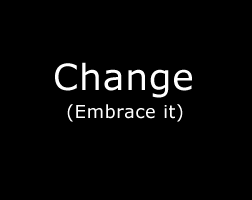
31 Dec 2008
Who Invented the Dot in Filenames?
Who invented the dot (“.”) that precedes the file type extension, as in document.doc or metal.mp3? As we near the end of what has emerged as a most interesting year, we all could use the diversion of examining the history of something so simple and pervasive, that we all take for granted. A note from my friend Brad Templeton reminded me that being in the right place at the right time can be profound. In fact, as strange as it sounds, Brad Templeton may well have invented the dot in “.com“, as he discusses here. As he says: Brad Templeton “Indeed if it was me, it was simply by virtue of the fact that having been around at the beginning of these things, and taking an interest in these issues. Being in the right place at the right time. But it’s simultaneously mind-boggling, conceit-building and humbling to think that what I said might have sparked something that became so universal.” This led me to ask myself, who orginated the ubiquitous dot that separates the extension, denoting file type, from the base file name. A much older concept, clearly the use […]

26 Dec 2008
Playing the Lottery after the Meltdown
Fold or raise? Full house or three of a kind? Eager to jump start an economy that has seen almost unprecedented meltdown, governments around the world are racing to place gargantuan bets with taxpayer and treasury money. Only time will separate the profound from the boondoggle among these bets. Meanwhile, poised on the dawn of a new year, I’ll present my analysis and opinion, recognizing that the complexity of the current situation dictates that no one has the real answer. Last year’s credit crunch and the ensuing illiquidity has generated a financial crisis whose effect that might have, only a few months ago, seemed totally inconceivable: massive government ownership of banks (HBOS, Northern Rock) and insurance companies (AIG) bankruptcies of some pillars of the financial system (Lehman Brothers) a North American auto industry (GM, Ford, Chrysler) that stared down death, and even with bailouts, may not survive in any recognizable form an estimated $30 trillion of value wiped out of global stock markets in a matter of months, according to Alan Greenspan not to mention a US recession that has already lasted a surprising one year, with almost no country […]

19 Dec 2008
Congratulations to Jonathan Howard
Today at precisely 11:18 PST saw the fulfillment of a long held and ambitious dream. At that time, my nephew Jonathan Howard, having set out on March 25th of this year, persevered in his epic run and completed it by dipping his toe into the Pacific Ocean at Mile 0 of the Trans Canada Highway in Victoria BC. I’m still awaiting the photo, but at the bottom of this post you can see Jonathan dipping his toe into the Atlantic to kick of this run. Our March posting first described his ambitious venture, Run The Dream, in which Jonathan and his team of volunteers sought to raise both awareness and a targeted $2.5 million for Autism Spectrum Disorders. Today, he completed that quest. Congratulations to Jonathan on this remarkable accomplishment. His passion and commitment are remarkable and this is truly an examplar of the new generation of social entrepreneurism. Please consider supporting his dream by donating at the Run The Dream website or perhaps attending a Gala fundraiser to be held on 25 March, 2009 in Toronto. Below I’ve included a YouTube re-broadcast of the completion of Run The Dream […]

14 Dec 2008
Ray Simonson Video Replay of MaRS Entrepreneurship 101
I wanted to share a great presentation by Ray Simonson who spoke on December 3rd, giving a “Lived It” talk as part of the Mars Entrepreneurship 101 lecture series at MaRS Discovery District in Toronto. I’ve known Ray for a long time and, not only is he a great guy, but he’s an amazing storyteller. Certainly Ray’s stories can serve to inspire and educate any budding entrepreneur. Ray is forthright, having seen his share of challenges along the way, ones that might make a less determined person pack it in. Ray Simonson Since 2004, Ray and I partnered through Verdexus to acquire then build the company now known as Coreworx (formerly Software Innovation). Since its August 2008 acquisition by Acorn Energy, Ray continues as CEO of a growing business. This recent lecture, focusing on Ray’s first exit at BlueGill Technologies, was taped and the video located here: Lived It Video by Ray Simonson is well worth the time to view. The site requires you to provide your name and email to access the video. It’s part of a great, non-credit course to encourage and educate new entrepreneurs with real life […]

29 Nov 2008
Business Models: Subscription vs. Freemium vs. Free in Lean Times
Have you invented a killer application that people will use in business or their personal lives on a regular basis? Are you ready to implement a great web/mobile experience in the context of building a web startup business? Now what? You’ll want to evolve a business model that helps viral adoption, yet still allows for effective monetization of your great new application. Below are the three main web-based models you may wish to consider: 1. Subscription: This model involves a per monthly charge for a service and generally uses traditional and web approaches to customer acquisition. A conservative approach, this is simply a Web 1.0 conversion of traditional selling models to the online world. That being said, many great businesses have thrived using this model, because in principle, cash flows can commence very quickly. 2. Free: Since the early days of the web, sites like Yahoo!, and more recently Google and Skype, based on web economics and culture offer a high level of service and utility for the amazingly low price of free. Free continues to be the pricing model of choice for consumer web users. Notwithstanding the lowered costs […]

23 Nov 2008
Counter-cyclical Optimism
Is this a good time for startups? In the midst of the greatest financial turmoil in most people’s living memory and with several posts about the challenges of startup finance, it’s time to counter with an optimistic message about startups. Perhaps I’m sanguine, having almost always raised capital against some of the worst macroeconomic cycles, such as the Asian Financial crisis in October 1995, the Quebec Referendum of 1997, not to mention the technology meltdown of 2000. In the end, although closed at less favourable valuations, the financings got done, proving to me that businesses can get built in the midst of even the toughest economic and market conditions. These experiences taught me that perhaps the best time to launch a startup may well be in an economic downturn. As counter-intuitive as it may seem, it worked for well known companies like Skype, Google, Expedia and Apple’s iPod. Here’s why. First of all, innovations which involve disruption to existing pricing models, are likely to be most successful during economic downturns. Businesses and consumers, looking for ways to reduce cash burn, are way more open to new ways that optimize […]

9 Nov 2008
Digital Policy #4: Reversing Canada’s Dismal State of Mobile Regulation
“Permanent connectivity, not motion, is the critical thing” Manuel Castells, Annenberg School for Communication It is safe to say that mobile regulation in Canada represents a huge opportunity as the foundation for much of our future economic prosperity. It is ironic that such a geographically dispersed country, once the world leader in telecommunications through to the early 1980’s, should abandon what should be a natural competitive advantage. Why Did the Internet Succeed? One might expect that the mobile world would replay the software revolution dominated by Microsoft and the Internet/Web revolution of the 1990’s. Unfortunately, the mobile world is too closed for that replay to happen and, to understand why, it is instructive to look back in time. The opportunity to create the modern software industry, separate from the then dominant computer hardware industry, emerged because of an IBM Consent Decree first concluded in 1956 and strengthened by increasing anti-trust action through the 1970’s. This regulatory action ensured that IBM, although dominating the computer industry, had to publish open specifications for their hardware and price software separately from hardware. Thus, in some measure through appropriate government regulation, the modern […]
13 Jan 2009
Another One Bites the Dust – and You Thought Business Was in Crisis Mode
“Another one bites the dust.How do you think I’m going to get along,Without you, when you’re gone”QueenThis is a call to action where individual citizens can make a huge difference.The recent loss of a local cultural gem, namely King Street Theatre:Curtain Closes on Another Local Local Theatreand the near death experience of the 87 year old cultural gem the Grand Philharmonic Choir, from cash flow challenges, has shone a spotlight on how the financial meltdown is already impacting the Waterloo area arts and cultural scene. As one who supported King Street Theatre’s original capital campaign, I feel this loss personally. Further, I am optimistic that many in our community share this sense of loss.Many of the key funders who directly invest in our cultural sector, such as local foundations and individual donors, have seen their financial investments tank along with the rest of us. Given that 2009 contributions will largely be determined by 2008 investment returns, we are probably just seeing the tip of the iceberg.The media cites lack of citizen interest or poor attendance as the root cause. Many business people working with social enterprises observe that many organizations […]